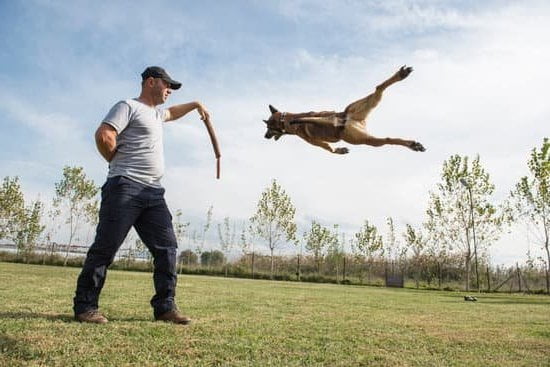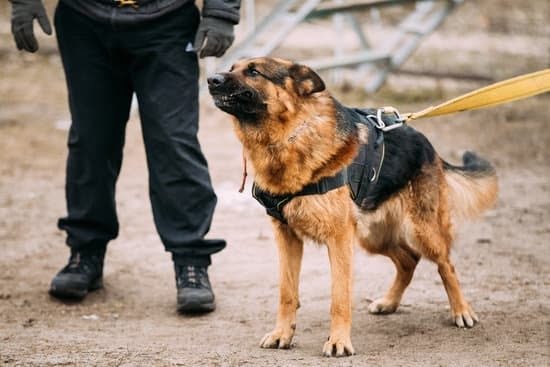Crate Training Dogs Good Or Bad
There are a lot of different opinions on crate training dogs. Some people think it’s cruel and that dogs should never be confined to a small space. Others believe that crate training is the best way to housetrain a dog and that it can also help with behavioral problems. So which is it – is crate training good or bad?
The answer to that question depends on how you use crate training. If you use it as a way to confine your dog for long periods of time or to punish him, then crate training can be bad. But if you use it as a way to give your dog a safe, comfortable place to rest and relax, then it can be good.
Dogs are den animals and they instinctively feel safe in a small, enclosed space. A crate can provide your dog with that sense of security, which can help him to feel calm and relaxed. Crate training can also be a helpful tool for housetraining a dog. When you first begin crate training, put your dog in the crate for short periods of time and gradually increase the amount of time he spends in there. This will help him to get used to being in the crate and will make it easier for him to learn to hold his bladder and bowels.
Crate training can also be helpful for dogs who have behavioral problems. Dogs who are fearful or aggressive may feel more comfortable in a crate, and crate training can help to reduce their anxiety and aggression.
Overall, crate training can be a helpful tool for training your dog and can also help to improve his behavioral problems. But it’s important to use it in the right way, and to never use it as a way to punish your dog.
Easiest Dog To Crate Train
There is no one-size-fits-all answer to this question, as the easiest dog to crate train will vary depending on the individual dog’s personality and temperament. However, there are a few general tips that can help make the process easier for both you and your dog.
The first step is to choose the right crate. The crate should be large enough for your dog to comfortably stand up, turn around, and lie down in. It should also be sturdy and well-constructed, as your dog will likely be spending a lot of time in it.
The next step is to gradually introduce your dog to the crate. Start by placing the crate in a quiet and comfortable spot in your home, and put a soft blanket or towel inside. Slowly begin feeding your dog his meals inside the crate, and when he’s comfortable with that, begin closing the door for a few minutes at a time. Gradually increase the amount of time your dog spends in the crate, and make sure to praise him when he behaves well.
If your dog starts to whine or bark when he’s in the crate, don’t give in and let him out. This will only teach him that whining and barking are effective ways to get what he wants. Instead, wait until he’s quiet and then let him out.
crate training can be a valuable tool for both you and your dog. It can help housetrain your dog, keep him safe when you’re not home, and provide him with a sense of security and comfort.
Crate Training With Another Dog In The House
When crate training a dog, it is important to keep in mind that the dog will be more comfortable if there is another dog in the house. This is because the dog will feel less alone and more secure. There are a few things to keep in mind when crate training a dog with another dog in the house.
The first thing to keep in mind is that the dogs will need to be properly introduced. This means that the dogs should be allowed to get to know each other in a safe environment, such as a fenced-in yard. Once the dogs have been introduced, they can be supervised when they are in the same room together.
If the dogs are crate trained separately, it will be important to make sure that they are never left in the crate together. This is because the dogs may fight or become aggressive with each other.
If the dogs are crate trained together, it is important to make sure that they are supervised at all times. This is because the dogs may fight or become aggressive with each other. In addition, the dogs should be crated in different areas of the house. This will help to prevent any fighting or aggression from happening.
It is important to keep in mind that crate training is not a quick process. It may take several weeks or even months for the dogs to get used to being in the crate together. If there are any problems with aggression or fighting, it is important to seek professional help.
How To Start Crate Training An Older Dog
If you have decided to start crate training your older dog, you are on the right track. Crate training can be a very beneficial tool for house training and for managing your dog’s behavior. It can also help your dog feel safe and secure while you are away.
The key to successful crate training is to make the crate a positive place for your dog. Start by putting a soft blanket or towel in the crate and placing a few of your dog’s favorite toys inside. You may also want to give your dog a treat every time he or she goes into the crate.
Once your dog is comfortable going into the crate, begin by closing the door for a few seconds at a time. Gradually increase the amount of time the door is closed. Once your dog is comfortable with the door closed, begin to leave him or her in the crate for short periods of time. gradually increase the amount of time your dog spends in the crate.
If your dog begins to whine or bark in the crate, don’t give in and let him or her out. Wait until your dog is quiet before letting him or her out. This will help your dog learn that whining or barking will not get him or her out of the crate.
If you are crate training your dog for house training purposes, make sure your dog eliminates before being crated. If your dog has an accident in the crate, don’t scold him or her. Simply clean up the mess and start again. Crate training takes time and patience, but it is well worth the effort.
Crate Training New Dog
One of the first things you will need to do when you get a new dog is to train it to use a crate. Crate training can be a bit of a challenge, but it is worth the effort. A crate can provide your dog with a safe place to sleep and a place to go to the bathroom.
The first step in crate training is to get your dog used to the crate. You can do this by placing the crate in a room where your dog spends a lot of time. Put some of your dog’s favorite toys and treats in the crate, and let your dog explore it. Once your dog is comfortable going into the crate, you can start using it to house train your dog.
When you are training your dog to use a crate, you will need to be consistent. You should always put your dog in the crate when you are not able to watch it, and let it out when you are able to. If you let your dog out of the crate when it is not supposed to be, it will start to associate the crate with being punished.
Crate training can be a bit of a challenge, but it is worth the effort. A crate can provide your dog with a safe place to sleep and a place to go to the bathroom.

Welcome to the blog! I am a professional dog trainer and have been working with dogs for many years. In this blog, I will be discussing various topics related to dog training, including tips, tricks, and advice. I hope you find this information helpful and informative. Thanks for reading!





